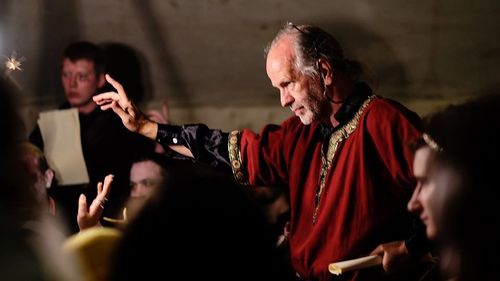General
Overview
General is an Imperial title. There is one general for each Imperial army - a new title is automatically created when a new army is created. General is a National title granted by the Senate to any citizen appointed to the command of an Imperial army. Each army is associated with a single nation - a general must be of the same nation as the army they command.
Responsibilities
Each General is responsible for the Imperial army they command. They have the absolute final say on the orders that army will receive. As a group, the Generals are also responsible for conducting the various military campaigns against the enemies of the Empire - claiming new territory, protecting the borders and wielding the martial might of the Empire to the best of their ability.
Generals often find themselves at odds with special interest groups within their own nation and within the Empire as a whole. They are often on the receiving end of attempts to influence their decisions in favour of one faction or another. They are often blamed for failures that are not their fault, and when they achieve victory there are plenty of bystanders ready to take credit.
Some generals take advantage of this situation to pave the way for a successful career in the Senate, or even climb their way to The Throne on the back of successful campaigns and carefully gathered allies. Others retire from public life, haunted by their failures and accusations of incompetence.
Powers
Command of an army
A general commands a single Imperial army, drawn from volunteers from their nation. Once a general is given their command, they have sole authority to order the army to move or attack as they choose. Traditionally the generals of one nation will cooperate but it is not a requirement and a general is within their rights to give orders as they see fit.
Generals do not have control of the logistics of their army, all these matters are handled for them by the civil service. Some generals choose to fight in the field with their army, others prefer to issue orders only, but either way such matters are not handled during the political meetings at Anvil. Experience has shown that all attempts to plan intricate tactics for a vast military campaign that will span the next three months are worse than pointless.
As a result the civil service will not accept any instruction from a general for precise tactical deployments or operations. What is decided at Anvil is where the army will move and where it will fight - over the next three months and nothing more. It is this decision that the general must make when at Anvil.
Military Council Vote
Each general receives a single vote on the Military Council. The Council often makes decisions by rough consensus but it will resort to a simple majority vote with a single vote for each general and full member of the Council if needed.
Adjutant
Each general is permitted to bring an adjutant to the council with them, but only those with a vote on the council can speak unless invited to do so. In practice the rule is rarely enforced unless the tent is crowded or those present are being disruptive. Synod members have the right of witness, but cannot speak unless invited to do so. Although a good adjutant is invaluable, they do not have any formal legal powers, so the position is classed as a ceremonial title.
Adjutants do not receive a vote on the Military Council.
Proxy
A general may appoint a proxy.
Selection
Generals are normally elected on the anniversary of the creation of the army they lead. Each title is a national position appointed by the Senate. Under normal circumstances it will be appointed by unanimous vote of the Senators of the appropriate nation.
Only a citizen of the appropriate nation may be appointed as a general of that nation's army.
Removal
A general serves until the next election for the title. A general can be revoked by the General Assembly, the Assembly of the Nine and by the appropriate National Assembly of the Imperial Synod.
Further Reading
Core Brief
Additional Information
- War
- Council Address
- Appointments to the Military Council
- Appointments by the Military Council
- OOC Design
